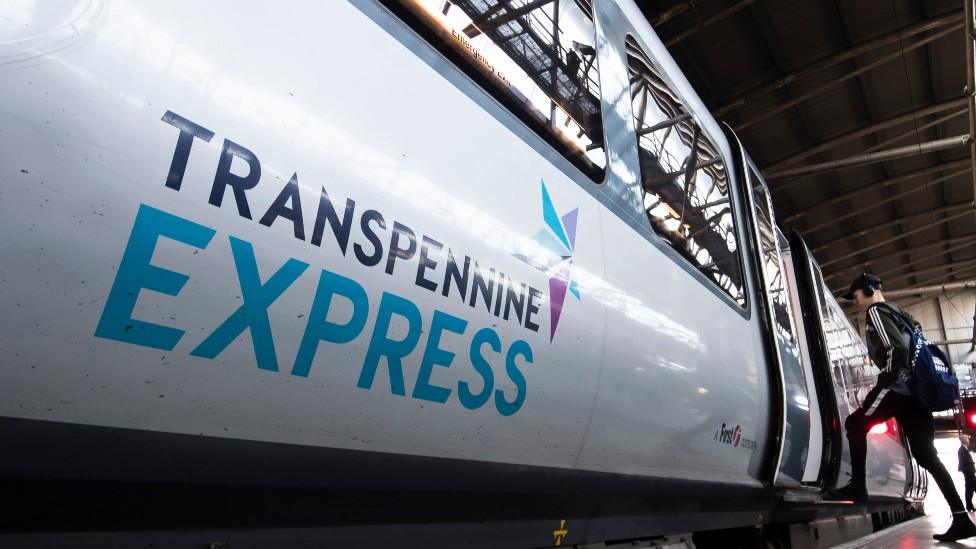Transpennine Express boss apologises for poor services
- Published
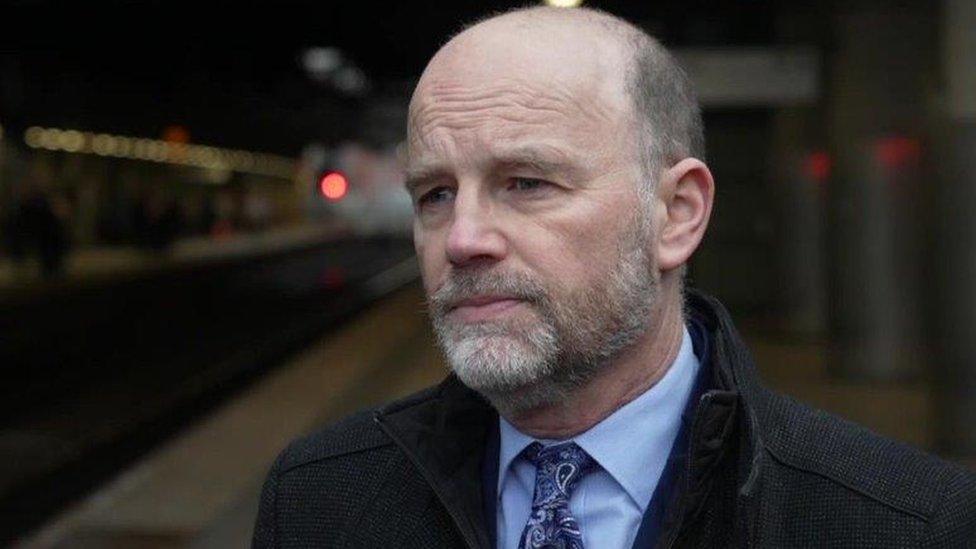
Matthew Golton apologised for the poor levels of service
The boss of under-fire train company Transpennine Express has apologised to passengers and admitted services have not been good enough.
Transpennine, which operates across the North of England and into Scotland, has been cancelling trains on a daily basis for months, disrupting many journeys.
Calls have been made for the company to lose its contract for the service.
Matthew Golton, managing director of Transpennine, told the BBC the operator had a "recovery plan" to do better.
The government has previously said action will be taken if the company "can't be turned round".
Asked about Transpennine cancelling 40% of its services last week, Mr Golton said: "It isn't good enough.
"I apologise. We know that this business is really important to the North of England [and] Scotland. We know that we've got to do a good job and we really care about when we let people down."
Passengers across the country have experienced disruption and cancellations to train journeys in recent months due to strikes by workers over pay and conditions.
But services have also been axed outside of industrial action with train cancellation rates in Britain hitting a fresh record. Transpennine has blamed its cancellations on high sickness rates and a backlog of driver training caused by the Covid pandemic, as well as drivers not working overtime.
Mr Golton said that during the height of the pandemic the company "couldn't train the way that we needed to".
"We've had high levels of sickness, but critically in December 2021, we lost the benefit of overtime working by our drivers."
Transpennine and union Aslef had an agreement for train drivers to work on rest days but that ended in 2021 and a new one has not yet been agreed. Union representatives have argued a new offer was lower than the previous deal.
Mr Golton said having no overtime agreement meant it was "more difficult to get through the rate of training that we want to and that's been a key issue for us".
But Mick Whelan, the Aslef general-secretary, hit back and said the company had had 12 months to train new drivers.
The union boss rejected the notion that drivers should hold any blame and claimed members were being asked to work rest days for reasons they shouldn't be.
"What we have is a company that should no longer have its franchise, that is inept and operates in bad faith, and then wants people to dig them out of the hole they have created for themselves," he said.
"They have more than enough capacity to do whatever training they are required [to do] and should not be relying upon people working on their quality time off."
Mr Golton denied the company had failed to recruit enough drivers and said Transpennine had 200 more drivers than it had five years ago. "We've not got a shortage of drivers," he said.

'Getting the train home is the ultimate gamble'

The trains are so unreliable at the moment that it's hard to make plans, says Rowan Burnett
Rowan Burnett relies on Transpennine trains to commute from his home in Marsden, a village in West Yorkshire, to work in Manchester and sometimes in Leeds.
He usually gets the 07:46 train, but it's often cancelled. When the service is running, he says he could "count on one hand" the number of times it's been on time in the past three or four months.
"In the evening that's the ultimate gamble to be honest," he says. "You can set off from the office looking down the line and seeing three or four cancelled trains in the evening."
Mr Burnett says being in the middle of Manchester and Leeds is a good location to live "in theory", but the reality is "you just can't make plans to be somewhere at a certain time because you don't know what's happening at the moment".

After last week's cancellations, Mr Golton said this week had "been better" so far, with the number of cancelled services down 20%.
But the company is still under pressure.
When rail franchises fail in England, they are taken over by a Department for Transport-owned company called the Operator of Last Resort (OLR).
Rail Minister Huw Merriman has previously said that if Transpennine "can't be turned round then decisions will be made".
Labour's Mayor of West Yorkshire Tracy Brabin said on Thursday that Transpennine's contract "must not be renewed" by the government in May.
"Enough is enough - the time for excuses has passed. We have lost trust in their ability to improve," she said.
Asked if Transpennine should keep its contract, Mr Golton said: "We care very much about delivering this contract and doing it well.
"Up until the autumn of 2021, we were having the best service levels of performance that we've ever had as a business."
Northern, Southeastern, and London and North Eastern Railway (LNER) are currently run by the OLR.
The government also recently gave another troubled operator, Avanti West Coast, six months to urgently improve.
Related topics
- Published20 January 2023
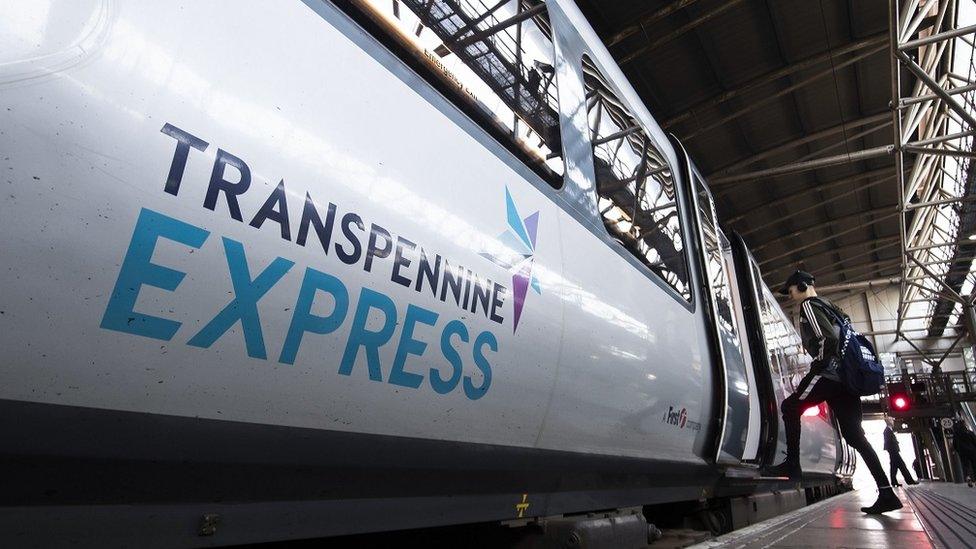
- Published19 January 2023
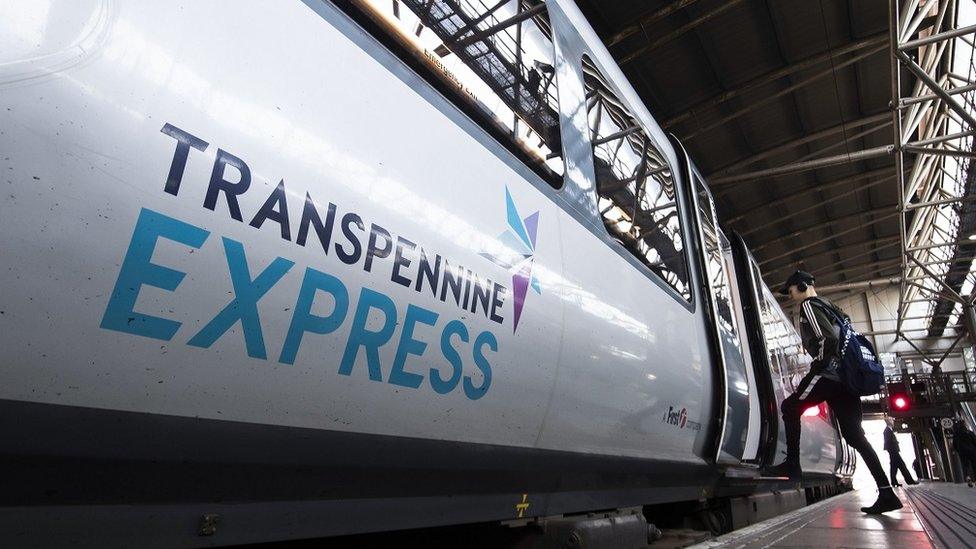
- Published18 January 2023
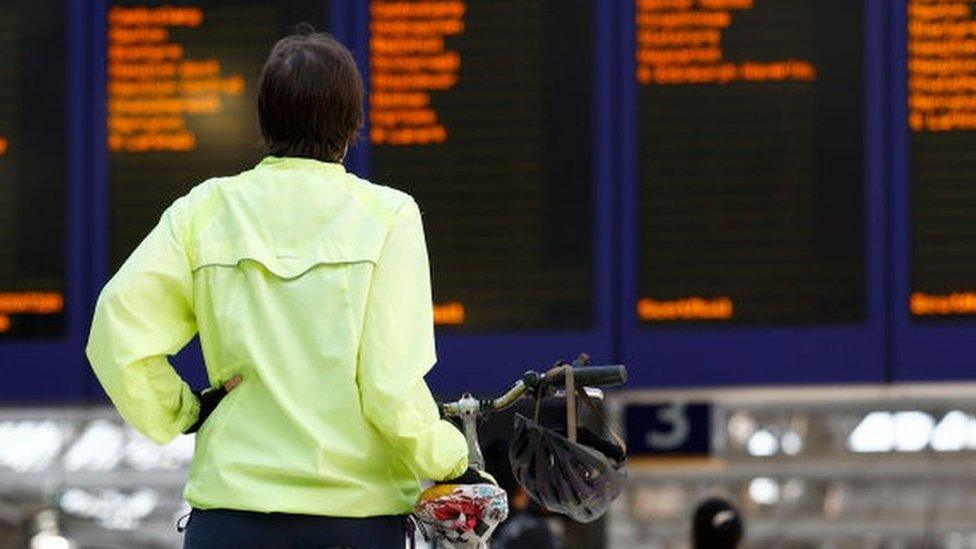
- Published22 December 2022
